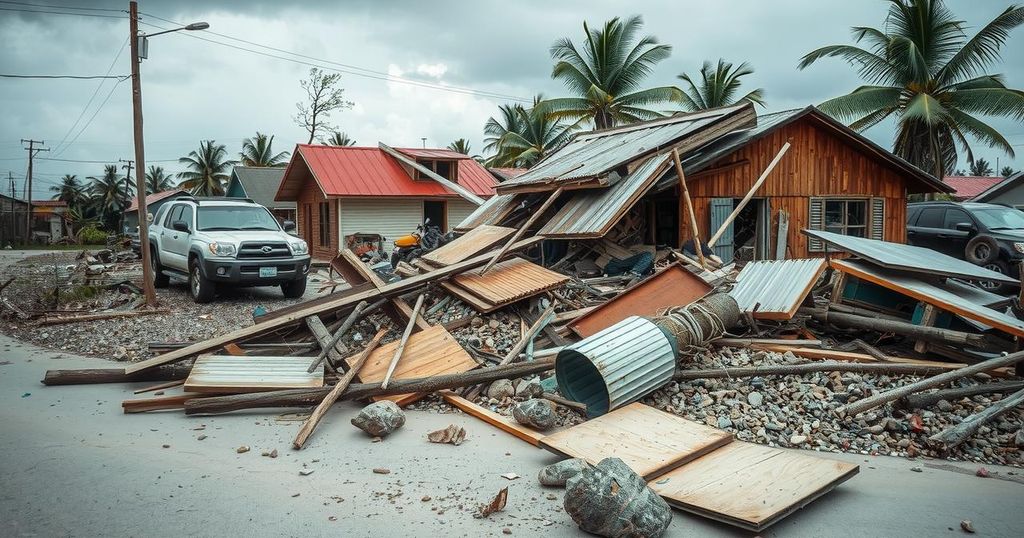Devastation in Mozambique: Cyclone Chido Claims Lives and Displaces Thousands

Cyclone Chido struck Mozambique, leading to at least 34 deaths and extensive infrastructure damage. The cyclone displaced thousands, particularly affecting Nampula and Cabo Delgado provinces. The storm continues to bring heavy rains and winds, with ongoing appeals for aid and heightened safety measures advised by authorities. It has also impacted neighboring regions, emphasizing a broader humanitarian crisis.
Cyclone Chido has wrought devastation across Mozambique, resulting in at least 34 fatalities and displacing thousands of residents. The Cyclone made landfall earlier this week, particularly impacting the Nampula province, where initial casualties were reported. The National Institute of Risk and Disaster Management (INGD) confirmed the extensive destruction of infrastructure, including homes and roads. Despite having weakened to a severe storm, Chido continues to exert heavy rains and strong winds, necessitating ongoing precautions among the populace.
In her address, the President of INGD, Luisa Meque, emphasized the necessity for heightened awareness and adherence to warnings regarding the cyclone’s progression. The cyclonic remnants are expected to traverse the Tete and Niassa provinces, where the government has initiated an appeal for humanitarian assistance. The United Nations Children’s Fund (UNICEF) has indicated provisional data regarding fatalities, while supplementary support from the European Union humanitarian agency has been requested.
As the cyclone continues its path, authorities reported at least 319 injuries linked to the storm. The extreme weather event initially struck Cabo Delgado, and further devastation has occurred in Nampula and Niassa provinces. Additional figures indicate that approximately 23,600 homes and 170 fishing vessels were obliterated, impacting around 175,000 individuals, particularly in regions already grappling with economic and infrastructural vulnerabilities.
Chido’s trajectory has also affected neighboring nations, having previously hit the island of Mayotte and subsequently moving to Malawi before dissipating near Zimbabwe. Humanitarian organizations, such as Save the Children, have raised alarms about the risks to approximately 650,000 children and their families, highlighting the ongoing humanitarian crisis caused by Cyclone Chido.
Cyclone Chido is indicative of the increasingly frequent and severe weather events affecting Southern Africa, particularly Mozambique. The nation has often faced natural disasters, including past cyclones, which have significantly strained its recovery and relief mechanisms. The current cyclone’s impact is exacerbated by existing social and economic challenges, including poverty and regional conflicts, making recovery efforts critical but complex. With a history of devastating cyclones, including the recent occurrences, Mozambique has become a focal point for international humanitarian efforts seeking to mitigate the impacts on vulnerable populations.
In conclusion, Cyclone Chido has tragically claimed lives and caused significant destruction across Mozambique, highlighting the country’s vulnerability to natural disasters. As relief efforts are mobilized, the need for ongoing community vigilance and governmental support is critical to navigate the aftermath. The calamity also underscores the necessity for comprehensive disaster management strategies to safeguard populations from future cyclonic events.
Original Source: www.rfi.fr








